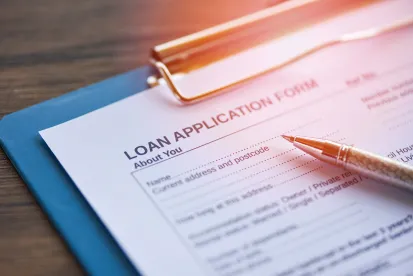The United States Department of the Treasury (Treasury) and the Small Business Administration (SBA) both continue to issue information and guidance with respect to the Paycheck Protection Program (PPP) and the loans available under it by the Coronavirus Aid, Relief, and Economic Security Act (CARES Act). In a prior alert, we called attention to updated PPP Loan FAQs that were issued by the SBA which purported to provide guidance, retroactively, on the certification borrowers were required to make for their PPP loans that “[c]urrent economic uncertainty makes this loan request necessary to support the ongoing operations of the Applicant” (Loan Necessity Certification). In particular, the SBA’s guidance urged each borrower to review carefully their prior Loan Necessity Certification to ensure such certification was made in good faith, taking into account the borrower’s current business activity and their ability to access other sources of liquidity sufficient to support their ongoing operations in a manner that is not significantly detrimental to their business. If a borrower revisits its Loan Necessity Certification and does not feel good about their initial certification, the SBA is permitting the borrower to return the PPP loan proceeds on or before May 14, 2020 and if such proceeds are returned, the borrower is automatically deemed by SBA to have initially made the required Loan Necessity Certification in good faith.
Updated Guidance
On May 13, 2020, in response to continued questions from borrowers regarding how the SBA will actually review Loan Necessity Certifications made in PPP loan applications, the SBA issued updated guidance to the PPP Loan FAQs in the form of FAQ 46.
46. Question: How will SBA review borrowers’ required good-faith certification concerning the necessity of their loan request?
Answer: When submitting a PPP application, all borrowers must certify in good faith that “[c]urrent economic uncertainty makes this loan request necessary to support the ongoing operations of the Applicant.” SBA, in consultation with the Department of the Treasury, has determined that the following safe harbor will apply to SBA’s review of PPP loans with respect to this issue: Any borrower that, together with its affiliates, received PPP loans with an original principal amount of less than $2 million will be deemed to have made the required certification concerning the necessity of the loan request in good faith.
SBA has determined that this safe harbor is appropriate because borrowers with loans below this threshold are generally less likely to have had access to adequate sources of liquidity in the current economic environment than borrowers that obtained larger loans. This safe harbor will also promote economic certainty as PPP borrowers with more limited resources endeavor to retain and rehire employees. In addition, given the large volume of PPP loans, this approach will enable SBA to conserve its finite audit resources and focus its reviews on larger loans, where the compliance effort may yield higher returns.
Importantly, borrowers with loans greater than $2 million that do not satisfy this safe harbor may. still have an adequate basis for making the required good-faith certification, based on their individual circumstances in light of the language of the certification and SBA guidance. SBA has previously stated that all PPP loans in excess of $2 million, and other PPP loans as appropriate, will be subject to review by SBA for compliance with program requirements set forth in the PPP Interim Final Rules and in the Borrower Application Form. If SBA determines in the course of its review that a borrower lacked an adequate basis for the required certification concerning the necessity of the loan request, SBA will seek repayment of the outstanding PPP loan balance and will inform the lender that the borrower is not eligible for loan forgiveness. If the borrower repays the loan after receiving notification from SBA, SBA will not pursue administrative enforcement or referrals to other agencies based on its determination with respect to the certification concerning necessity of the loan request. SBA’s determination concerning the certification regarding the necessity of the loan request will not affect SBA’s loan guarantee.
Impact of Updated Guidance
The updated guidance from the Treasury provides a number of positive clarifications for borrowers under the PPP loan program:
The SBA created a safe harbor such that any borrower that, together with its affiliates, received PPP loans with an aggregate original principal amount of less than $2,000,000 will be deemed by the SBA to have made its Loan Necessity Certification in good faith.
Borrowers with PPP loans greater than $2,000,000 will remain subject to potential review by the SBA on the Loan Necessity Certification. If the SBA determines during the course of its review that the borrower did not have an adequate basis for its Loan Necessity Certification, the SBA will seek full repayment of the outstanding PPP loan balance and notify the lender making such loan that the affected loan is not eligible for forgiveness. However, if the borrower repays the PPP loan, the SBA will not pursue any other administrative remedies or referrals of the borrower to other agencies for further action. This guidance likely comes as welcome news for borrowers who were previously considering returning their PPP funds for fear of potential further enforcement or litigation by the SBA or Treasury (or at their encouragement) relating to their Loan Necessity Certifications.
Note that while the updated guidance from the SBA and Treasury provides a safe harbor to borrowers with PPP loans of less than $2 million with respect to the Loan Necessity Certification, all borrowers are still potentially subject to the SBA’s review of other aspects of their PPP loans, including, calculation of the maximum amount of the loan, eligibility requirements with respect to number of employees and related SBA affiliation rules, and the use of the loan proceeds.
In addition, while the SBA has stated it will not make referrals to other agencies for further action in connection with its demand for repayment of a PPP loan, this guidance does not bind any other government agency or any whistleblower from unilaterally pursuing such action on its own accord. With that in mind, we still encourage borrowers, regardless of PPP loan size, to revisit the Loan Necessity Certifications and reduce to writing the consideration and analysis they undertook to evaluate their Loan Necessity Certifications.
Next Steps
We believe that this safe harbor will be the subject of a new interim rule in the near future. With that new interim rule, borrowers may get more guidance on some of the open issues that remain on the scope of the safe harbor and any potential reach to other agencies that might otherwise have standing to pursue claims against a borrower in and around the Loan Necessity Certification. Thereafter, we are expecting the Treasury to issue guidance and rules on matters impacting the loan forgiveness calculation which remains ripe for clarification.





 />i
/>i

